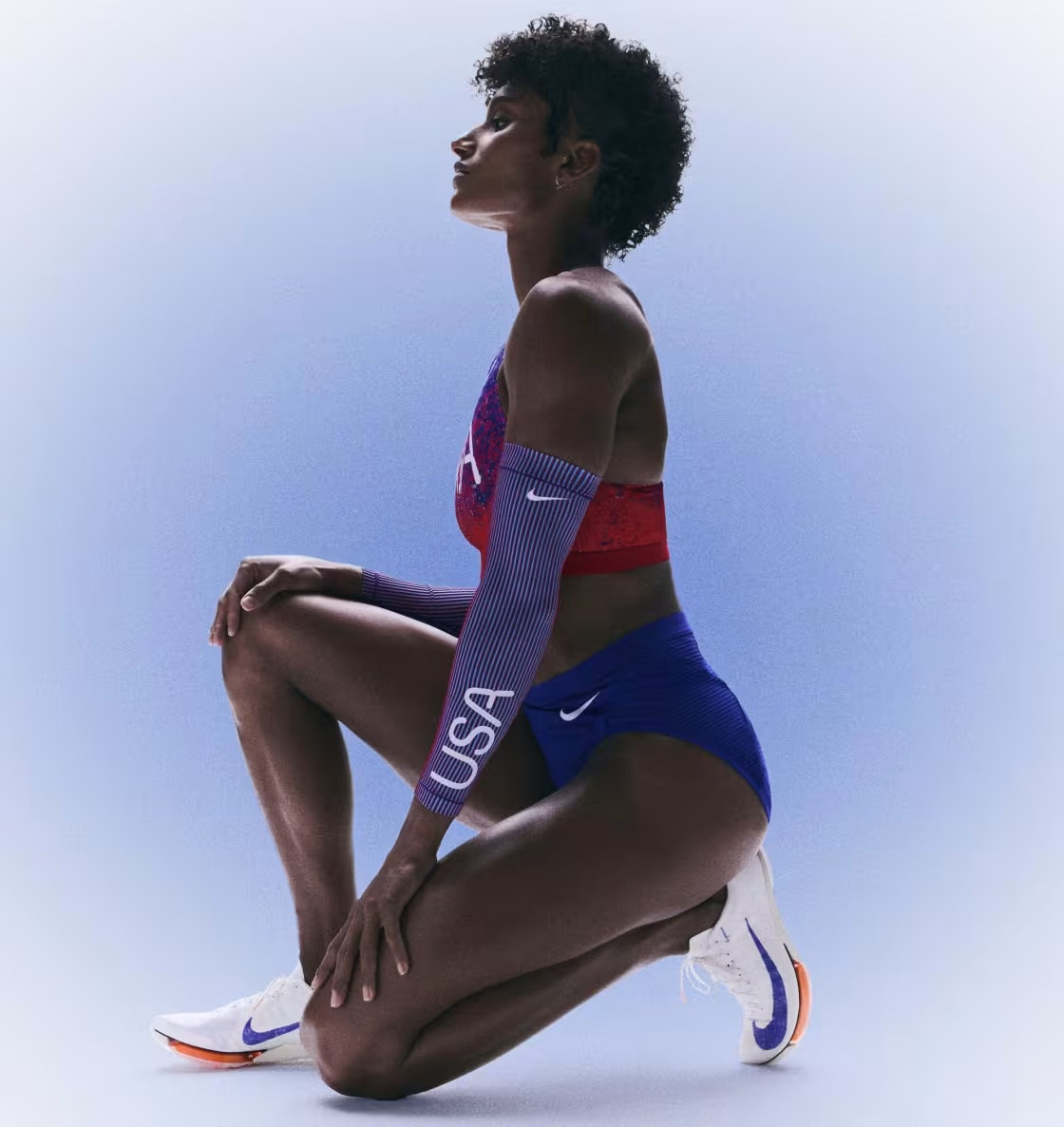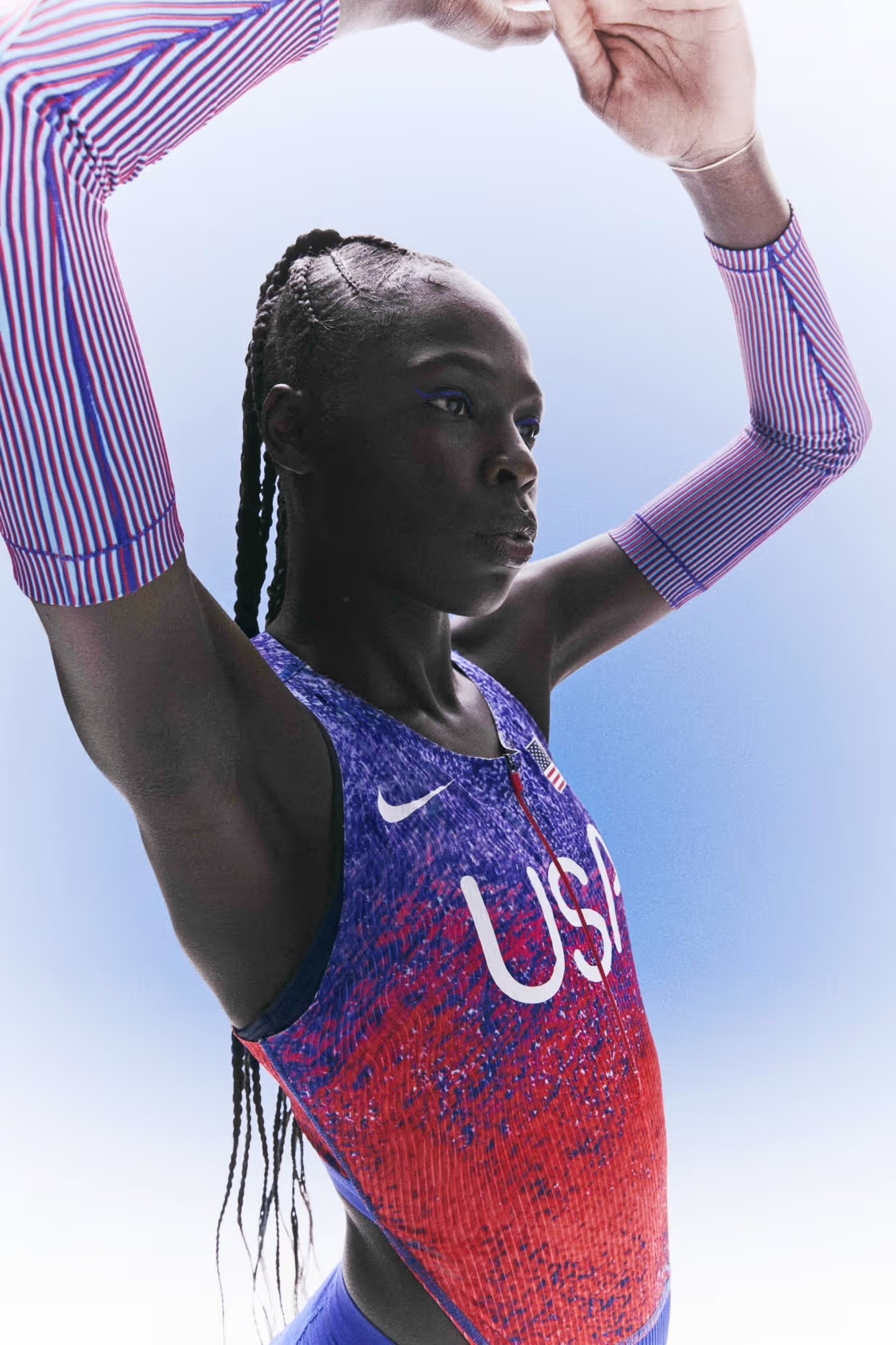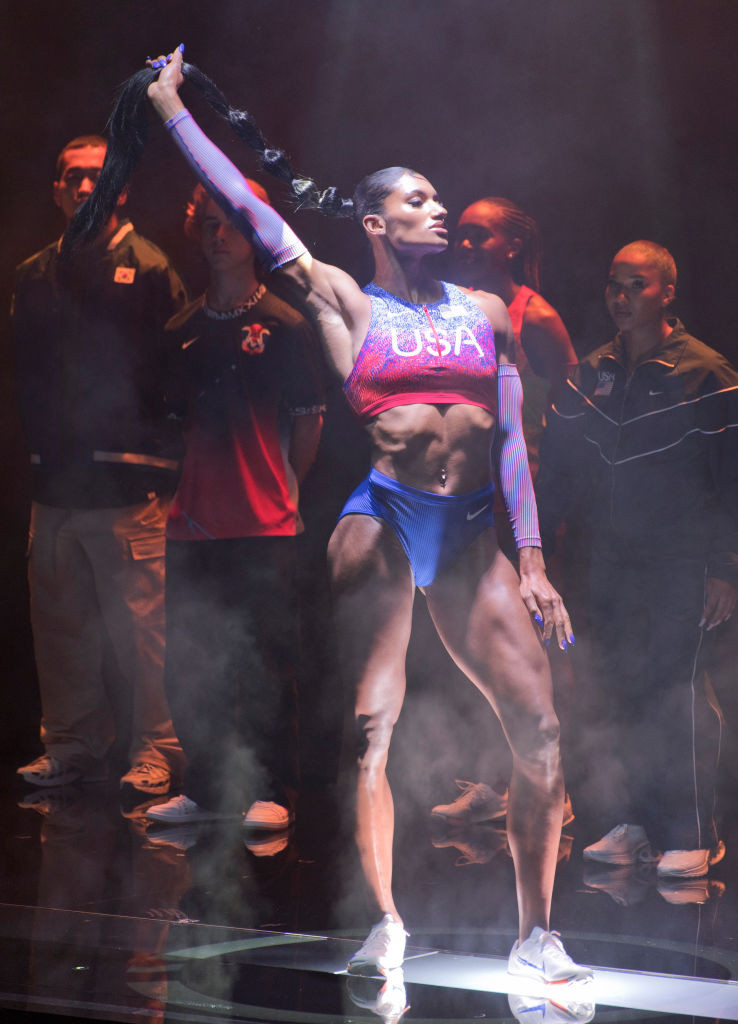Nike’s unveiling of the new track and field uniforms for Team USA at the upcoming 2024 Paris Olympics has ignited a significant debate. The controversy centers around the design of the u.s. women’s olympic uniforms, with critics raising concerns about sexism in the performance wear. The brand showcased the kits on Thursday, and social media quickly became a platform for обсуждение about the perceived design choices.
Initial Reactions to Nike’s Track and Field Olympic Uniforms
The controversy began when Citius Mag, a track and field publication, shared images of both men’s and women’s uniforms. The u.s. women’s olympic uniforms immediately drew attention due to their French-cut leotard silhouette. While the 2024 kits maintain the traditional red base color and incorporate blue and white stripes reminiscent of the Tokyo 2021 Olympics uniforms, the cut of the women’s design became a focal point of discussion and criticism.
Athlete Responses to the Uniform Design
Several prominent athletes have voiced their opinions on the u.s. women’s olympic uniforms. Tara Davis-Woodhall, an American long jumper who competed in the Tokyo Games, expressed her surprise on Instagram, commenting, “Wait my hoo haa is gonna be out.” Her comment reflected a concern shared by many about the practicality and coverage offered by the design, especially during high-performance athletic activities.
Queen Harrison Claye, a U.S. hurdler and 2008 Olympian, responded with sarcasm, tagging European Wax Center and jokingly inquiring about sponsorship for Team USA at the Olympic Games. This comment underscored the perception that the uniform design was overly revealing and potentially inappropriate for athletic competition.
 Team USA
Team USA
Paralympic runner Jaleen Roberts further highlighted the potential issues, stating, “This mannequin is standing still and everything’s showing… imagine MID FLIGHT.” Her remark pointed to the potential for discomfort and exposure during dynamic movements in track and field events.
Colleen Quigley, a steeplechaser and 2024 Team USA Olympic hopeful, in an interview with Reuters, directly criticized the u.s. women’s olympic uniforms, asserting that the unitard “is absolutely not made for performance.” Her professional opinion as an athlete emphasized functional concerns over the aesthetic choices in the design.
Lauren Fleshman, a coach and retired track star with multiple national championships, offered a more critical perspective on Instagram. She described the revealing design as “a costume born of patriarchal forces that are no longer welcome or needed to get eyes on women’s sports.” Fleshman’s statement framed the controversy within a broader societal context, suggesting that such designs perpetuate outdated and sexist views in sports. She further urged, “Stop making it harder for half the population,” advocating for more practical and respectful sportswear for women athletes.
 Team USA
Team USA
Defense of Nike Uniforms and Athlete Choice
Despite the widespread criticism, some athletes have come forward to defend Nike and emphasize the element of choice in uniform selection. Pole vaulter Katie Moon, an Olympic gold medalist sponsored by Nike, addressed the controversy on Instagram. She clarified, “I want to be clear and start by saying that what was shown on the mannequin was concerning, and warranted the response it received.”
However, Moon also highlighted the variety of options available to Team USA athletes. “We have at least 20 different combinations of a uniform to compete in with all the tops and bottoms available to us. We DO have the men’s option available to us if we want it,” she explained. Moon’s defense underscored that the French-cut leotard is not the only option and that athletes have considerable choice in what they wear. She further argued against the sexism accusations, stating, “When you attack the buns and crop top saying something along the lines of it’s ‘sexist’ (which if that was our only choice, it would be), you’re ultimately attacking our decision as women to wear it.” Her perspective shifted the focus from imposed sexism to athlete autonomy and the right to choose performance wear that suits individual preferences.
Nike and USATF Responses to the Uniform Debate
In response to the escalating controversy surrounding the u.s. women’s olympic uniforms, Nike issued a statement to ABC News. The brand clarified that the unitard is just one of a “range of styles” offered to athletes, emphasizing the availability of diverse options. Nike also stated that it “will also have tailoring options available for Olympic and Paralympic athletes at the games,” indicating a commitment to accommodate individual athlete needs and preferences.
USA Track & Field (USATF) also released a statement to ABC News addressing the matter. USATF reiterated that the showcased outfits “are only two of many options, including 50 unique pieces, that athletes will be able to choose from for the upcoming Olympic Games.” This statement reinforced the idea that athletes are provided with a comprehensive wardrobe selection for the Paris 2024 Olympics.
 Anna Cockrell at the Nike Air Innovation Summit on April 11 in Paris, sportswear, Olympics, track and field, Team USA, 2024, athlete
Anna Cockrell at the Nike Air Innovation Summit on April 11 in Paris, sportswear, Olympics, track and field, Team USA, 2024, athlete
USATF further emphasized athlete involvement in the design process, stating, “Athlete options and choices were the driving force for USATF in the planning process with Nike.” The organization asserted that “Nike consulted with athletes throughout the design process to ensure that all athletes are comfortable and that the uniforms are well-suited for their respective events.” These statements from both Nike and USATF aim to mitigate the controversy by highlighting athlete choice, the variety of uniform options, and athlete consultation during the design phase of the u.s. women’s olympic uniforms.
In conclusion, the unveiling of Nike’s u.s. women’s olympic uniforms for the Paris 2024 Olympics has sparked a significant discussion about sexism and practicality in women’s sports apparel. While the revealing design of the unitard option has drawn criticism and concerns from athletes and commentators, both Nike and USATF have emphasized that this is just one style among many, and athletes have extensive choices and tailoring options available to them. The debate underscores ongoing conversations about athlete comfort, performance needs, and representation in sports uniform design.
